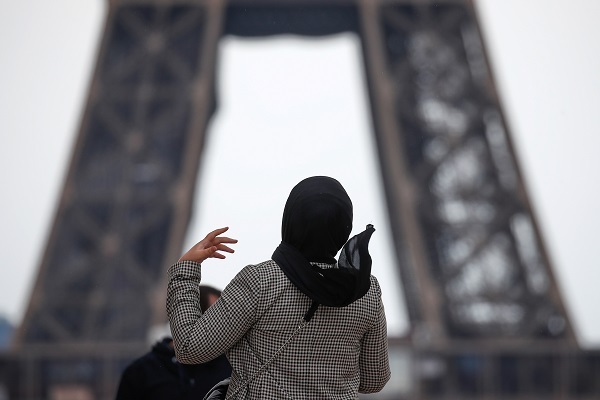Muslims Being Targeted ‘Systematically’ across Europe: Rights Groups

On Thursday, seven Muslim groups from Austria, France, Sweden, Spain, and the Netherlands spoke out against the climate of "state-sponsored" Islamophobia facing them in their countries.
Each organisation had three minutes to address the session, with representatives from Austria and France also in the room.
Their address to the Organisation of Security and Cooperation in Europe's (OSCE) Human Dimension Conference in Warsaw came days after Polish authorities banned Cage's international director, Muhammad Rabbani, from entering Poland after his name appeared on the Schengen Information System, which lets any Schengen member-state place an individual on a no-entry list to the Schengen zone.
This year, OSCE is chaired by North Macedonia's Foreign Minister Bujar Osmani, with the Human Dimension Conference in Warsaw lasting ten days and expected to end on 13th October.
Adani el-Kanfoudi, spokesperson for Muslim Rights Watch in the Netherlands, told the OSCE conference that he was due to meet Rabbani alongside other European Muslim civil society groups.
"This incident, among many others, is a perfect example of a broader pattern, where key figures from the Muslim community are unjustly placed on blacklists," said Kanfoudi.
"We are facing a distressing reality where Muslims are systematically targeted, a blatant violation of their constitutional rights. This discriminatory practice not only infringes upon individual liberties but also instils fear and division within our communities."
Commenting on his own country's situation, Kanfoudi spoke of the hundreds of Dutch Muslims who approached his organisation and said they had been wrongly placed on the terror list by the Dutch authorities, leading some to lose their livelihoods, face banking and travel restrictions and being treated like "second class citizens."
Quran burnings in Sweden
Arman Jeziz, who represents Insan, began by saying that a mosque had been burned down in Sweden as he was writing his speech.
“If books and mosques are being burnt, if Muslims are not permitted to dress as they choose, if they are subject to extensive surveillance, if they are frequently portrayed as problematic, and if they are viewed as potentially violent, where do the people in this room believe we are heading?" said Jeziz.
"Ultimately, the question can be put much more bluntly: What do Sweden and Europe want to do and what do they want to happen to their Muslim population?”
French abaya ban
Campaigners from France also spoke at the OSCE session and said the ban on the abaya in schools and recent police killings of young North African men had further heightened tensions.
"Undressed, harassed, humiliated. The young girls in France suffer, yet no one reacts," said Elias d’Imzalene, from Perspective Musulmanes.
"All my respect goes to these young Muslim girls who continue to fight for their freedom to remain Muslim even though the French state does everything it can to prevent them from remaining Muslim."
The OSCE describes itself as “the world’s largest regional security organisation”, drawing together 57 member states from Europe, Central Asia, and North America.
France’s representative’s response
A representative from the French delegation to OSCE used their session to discuss France's support for the European Commission against Racism and Intolerance.
Speaking before Imzalene, the French representative did not address concerns surrounding Islamophobia in France.
"In the field of religions and belief, everyone in France is free to believe in what he wants or not to believe and will be treated equally," the French representative remarked.
"Secularism, or L'aicite as we say in French, is another word for neutrality, religious neutrality of the state. The state does not take sides between believers or non-believers. L'aicitie provides a legal framework which allows everyone, should one be a believer or non-believer, to live together peacefully and with mutual respect."
Source: middleeasteye.net



